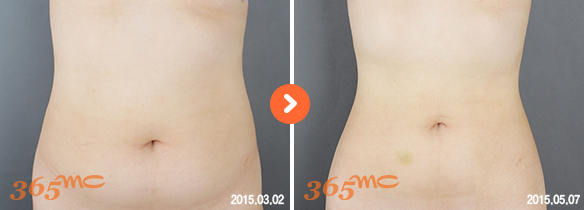 But fighting obesity can also help prevent killer diseases like diabetes and heart disease. Now, researchers led by Dr. Samuel Klein of Washington University School of Medicine in St. Louis believe they've answered that question. For their study, Klein and his colleagues used liposuction on 15 obese women to remove an unusually large amount of abdominal fat from each -- about 22 pounds on average, totaling nearly 20 percent of their total body fat.
But fighting obesity can also help prevent killer diseases like diabetes and heart disease. Now, researchers led by Dr. Samuel Klein of Washington University School of Medicine in St. Louis believe they've answered that question. For their study, Klein and his colleagues used liposuction on 15 obese women to remove an unusually large amount of abdominal fat from each -- about 22 pounds on average, totaling nearly 20 percent of their total body fat.Much of the marketing for laser liposuction, liposculpture and body sculpting give the impression that the new procedure is a safe, risk free, painless and quick procedure. I have read and heard claims that you can have your procedure done under local anesthesia, lose your fat, tighten your skin, and go on with your life, even back to work, the same day.
It just depends and we are not going to speed up the process to fit our schedule, we are not going to do things that would put patients in harm way. From our experience, many patients told us that they can get faster recovery time when they do the procedure with us than with other surgeons in Chicago area.
The skin above the liposuction site may become necrotic or "die." When this happens, skin may change color and be sloughed (fall) off. Large areas of skin necrosis may become infected with bacteria or microorganisms. Burns. During ultrasound assisted liposuction, the ultrasound probe may become very hot and can cause burns. Fluid Imbalance. Fat tissue, which contains a lot of liquid, is removed during liposuction. Also, physicians may inject large amounts of fluids during liposuction. This may result in a fluid imbalance.
Even meals that don't taste sweet may be full of sugars and its synthetic compatriots. It's important to have patience with yourself when you are trying to lose weight. Hurrying laser liposuction risks and interesting in crash diets generally doesn't produce long term outcomes. Think about why you need to lose weight, how much you want to shed, and create achievable goals to operate in the direction of.
New fat can be, deposited on the inner areas (around the organs) of the body such as heart and liver. However, this type of fat that is stored on heart and liver is harmful and sometimes life-threatening for humans than the fats that are stored under the skin (fat deposits on hips, thighs, belly, etc). So gaining weight after liposuction is a risk, so be careful of your weight after liposuction.
Necrosis is the medical term for dead tissue. During liposuction, some fat cells may die due to lack of blood supply caused when blood vessels are severed. When this occurs, the fat drains from the incision sites. However, necrosis in other tissue is a serous condition that can lead to infection. Because it involves the use of ultrasonic energy, Ultrasonic Liposuction carries risks that other liposuction techniques do not. The most serious risks associated with Ultrasonic liposuction are burns, either internally or on the skin.
All surgeries have risks and complications, and liposuction for men is no exception. Complications are rare, but can and do happen. These complications can include those that can occur with any surgery, such as an allergic reaction to the anesthetic, infection or other medical complications, along with complications specific to liposuction and cosmetic surgery. A bad reaction to anesthesia can occur during a liposuction procedure. This can occur even if you have had no previous problems with anesthesia.
There may either be extreme pain or total loss of feelings or what is commonly called numbness. Although this is considered quite normal after surgery, if the condition still persists after several weeks and months, it is necessary that you visit your doctor and consult with him. There is a possibility that the sensation can be made permanent when not given immediate attention. During ultrasound-assisted procedures, there is a danger of the ultrasound probe becoming too hot and it may cause burns through the skin.

The dead fat cells are then naturally eliminated from your body through the lymphatic system. No knives, needles, or scars are involved. The idea for cryolipolysis is based on phenomenon called “popsicle panniculitis,” named after the freezing and destruction of fat cells in the checks as a result of contact with popsicles. This was first noticed by dimpling in the cheeks of children eating popsicles.
